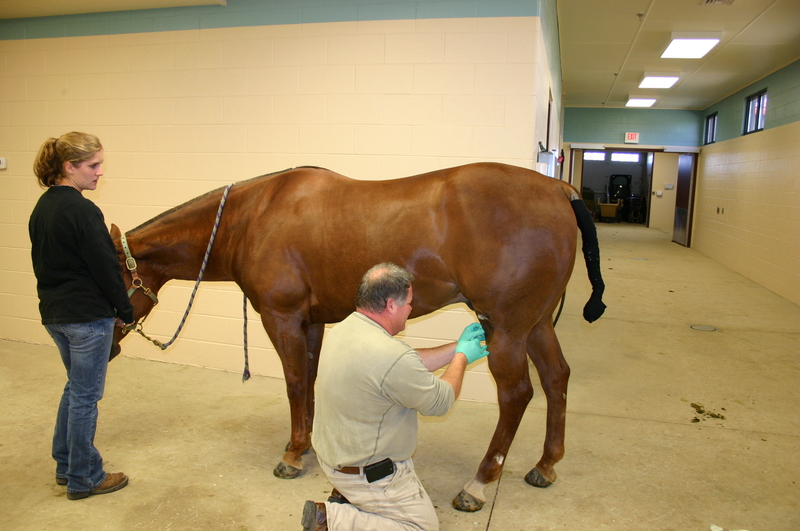Boosting Equine Health: A Comprehensive Guide to Horse Injections and Vaccines
Welcome to Abbey Veterinary Supply, your trusted online pharmacy for all your equine health needs. In this article, we aim to provide a detailed and informative guide on horse injections and vaccines. Our mission is to equip you with the knowledge to ensure the well-being of your beloved horses. As we delve into the intricacies of equine healthcare, we are confident that this comprehensive piece will help us outrank other websites and become your go-to resource for all things related to horse health.
Understanding the Importance of Horse Injections and Vaccines
Keeping your horses healthy and happy is of utmost importance for any responsible horse owner. Horse injections and vaccines play a vital role in preventing and controlling various diseases that can impact their well-being. Equine vaccinations are designed to stimulate the horse’s immune system, enabling it to produce antibodies to fight against specific diseases.
The Difference Between Horse Injections and Vaccines
While the terms “horse injections” and “horse vaccines” are often used interchangeably, there is a distinction between the two. Horse injections refer to the administration of medications, supplements, or therapeutic substances directly into the horse’s body using a syringe. These injections may include antibiotics, anti-inflammatories, vitamins, or other medications.
On the other hand, horse vaccines are a form of preventive healthcare. They contain weakened or killed disease-causing agents, which stimulate the horse’s immune system without causing the disease. This process helps the horse develop immunity against specific illnesses, protecting them from potential outbreaks.
Common Equine Diseases Prevented by Vaccines
- Equine Influenza (Flu): Equine flu is a highly contagious respiratory disease that can spread rapidly among horses. Vaccinating your horses against equine influenza is crucial, especially if they frequently come into contact with other horses at events or shows.
- Equine Herpesvirus (EHV): EHV can lead to respiratory infections, abortions in pregnant mares, and neurological disorders in horses. Vaccination is essential to prevent the spread of this virus and its potentially severe consequences.
- Tetanus: Tetanus is caused by bacteria found in soil and can enter the horse’s body through wounds, leading to muscle stiffness and potentially fatal consequences. Vaccination is the best defense against tetanus.
- West Nile Virus (WNV): Transmitted through mosquitoes, WNV can cause neurological disease in horses. Vaccination is highly effective in protecting horses from this deadly virus.
- Rabies: Rabies is a fatal viral disease that affects the central nervous system of horses. Vaccination is not only essential for the horse’s safety but also crucial for public health, as rabies can spread to humans through bites.
Designing an Equine Vaccination Schedule
Creating a proper vaccination schedule for your horses is essential to ensure optimal protection. Consult with your veterinarian to devise a plan tailored to your horse’s specific needs, as factors like age, health status, and lifestyle play a role in determining the most suitable vaccination regimen. Hock Injections for Horses
Administering Horse Injections: Best Practices
Proper administration of horse injections is crucial to avoid complications and ensure the best results. Here are some essential tips to follow when administering horse injections:
- Use a Clean Environment: Always conduct injections in a clean and well-lit area to minimize the risk of infection.
- Use Sterile Equipment: Ensure that all syringes, needles, and vials are sterile and disposable. Dispose of used needles safely.
- Select the Correct Injection Site: Different injections require specific sites for administration. Familiarize yourself with the appropriate locations or seek guidance from a veterinarian.
- Restrain the Horse Safely: Properly restrain the horse to prevent accidents during the injection process.
- Dispose of Waste Properly: Dispose of all medical waste, including used syringes and vials, in a safe and responsible manner. Adequan Injections For Dogs
Conclusion
As responsible horse owners, it is our duty to prioritize equine health and well-being. Understanding the significance of horse injections and vaccines is the first step towards ensuring a long and healthy life for our beloved companions. By following a well-designed vaccination schedule and best practices for administering horse injections, we can protect our horses from preventable diseases and potential health risks.
Remember, consult with your veterinarian to tailor a vaccination plan suitable for your horse’s needs. At Abbey Veterinary Supply, we are committed to providing you with high-quality medications, vaccines, and healthcare products for your equine companions. Together, let’s create a happy and healthy environment for our beloved horses.





No comment